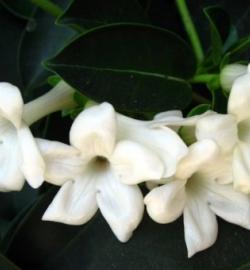Independence Day (Urdu: یوم آزادی; Yaum-e Āzādī), observed annually on 14 August, is a national holiday in Pakistan. It commemorates the day when Pakistan achieved independence and was declared
Sheesh Mahal

The Sheesh Mahal (The Palace of Mirrors; Urdu: شیش محل) is located within the Shah Burj block in northern-western corner of Lahore Fort. It was constructed under the reign of Mughal Emperor Shah Jahan in 1631-32. The ornate white marble pavilion is inlaid with pietra dura and complex mirror-work of the finest quality. The hall was reserved for personal use by the imperial family and close aides. It is among the 21 monuments that were built by successive Mughal emperors inside Lahore Fort, and forms the "jewel in the Fort’s crown."[1] As part of the larger Lahore Fort Complex, it has been inscribed as a UNESCO World Heritage Site since 1981.
About Pakistan
-
-

Muhammad Ali Jinnah (born Mahomedali Jinnahbhai; 25 December 1876 – 11 September 1948) was a lawyer, politician, and the founder of Pakistan.[1] Jinnah served as leader of the All-India Muslim
-

Allama Iqbal (علامہ اِقبال) (November 9, 1877 – April 21, 1938), widely known as Muhammad Iqbal, was a poet, philosopher, and politician, as well as an academic, barrister and scholar[1][2] in
-

Pakistan is one of nearly 200 countries illustrated on our Blue Ocean Laminated Map of the World. This map shows a combination of political and physical features. It includes country boundaries,
-

The Qaumi Taranah (Urdu: قومی ترانہ, Qaumī Tarānah pronounced [ˈqɔː.mi ˈt̪ə.rɑː.nɑ], lit. “National Anthem”), also known as Pāk Sarzamīn (Urdu: پاک سرزمین, pronounced [ˈpɑːk ˈsər.zə.miːn], lit
-

The salwar kameez is the national dress of Pakistan[1][2] and is worn by men and women in all four provinces Punjab, Sindh, Baluchistan and Khyber Pakhtunkhwa in the country and in Azad Kashmir.
-

For thousands of years, the jasmine plant has been cultivated not only for the beauty of its small, white, star-like flowers, but it has also been prized for its intoxicating scent. Originating in
-

Cedrus deodara (deodar cedar, Himalayan cedar, or deodar/devdar/devadar/devadaru; Urdu: ديودار deodār/devdār; Punjabi: دیار is a species of cedar native to the western Himalayas in eastern
-

The markhor (Capra falconeri; Pashto: مرغومی marǧūmi; Persian/Urdu: مارخور), also known as the screw horn goat, is a large species of wild goat that is found in northeastern Afghanistan,
-

The chukar partridge or chukar (Alectoris chukar) is a Eurasian upland gamebird in the pheasant family Phasianidae. It has been considered to form a superspecies complex along with the rock
-

Urdu (اردو) is the national language (قومی زبان), lingua franca and one of two official languages of Pakistan (the other currently being English). Although only about 8% of Pakistanis speak it
-

Field Hockey is the national game of Pakistan and wearing green shirts represent the Pakistan Hockey Federation in international field hockey competitions. Even though field hockey is the
-

The Nishan-i-Haider (Urdu: نشان حیدر meaning "Order of the Lion") is the Highest' military award given by Pakistan. Awarded "to those who have performed acts of greatest heroism or most
-

The Hilal-i-Jur'at (Urdu: ہلال جرات [ɦəˈlaːl ə dʒʊˈraːt̪], as if it were Halāl-e-Jurāt; English: Crescent of Courage , sometimes spelled as Hilal-e-Jur'at, Hilal-e-Jurat, Hilal-i-Jurrat and
-

Sitara-e-Jurat (Star of Courage) is the third highest military award of Pakistan. It was established in 1957 after Pakistan became a Republic; however, it was instituted retrospectively back to
-

Sitara-e-Basalat (Star of Good Conduct) is a non-operational award of Pakistan Armed Forces given to individuals for distinguished acts of gallantry, valor or courage while performing their duty.[
